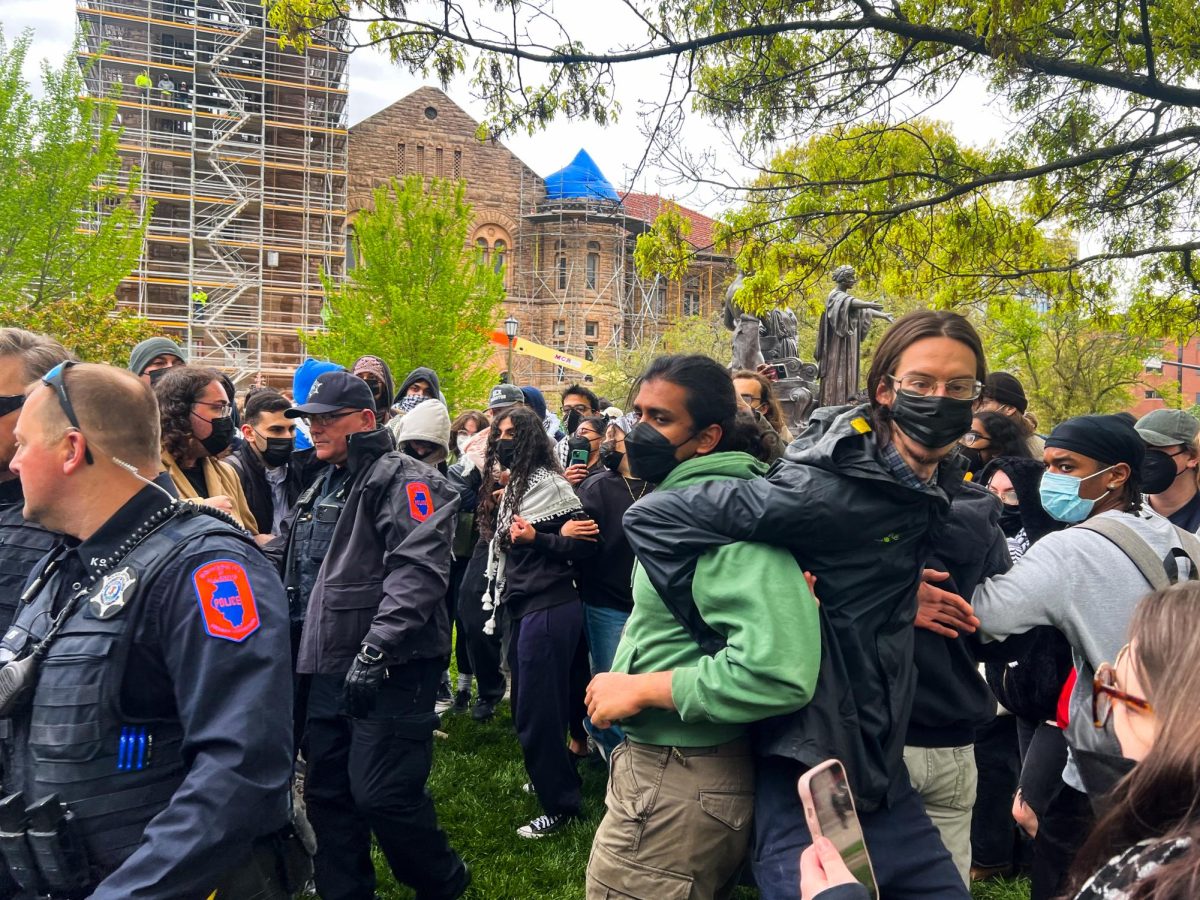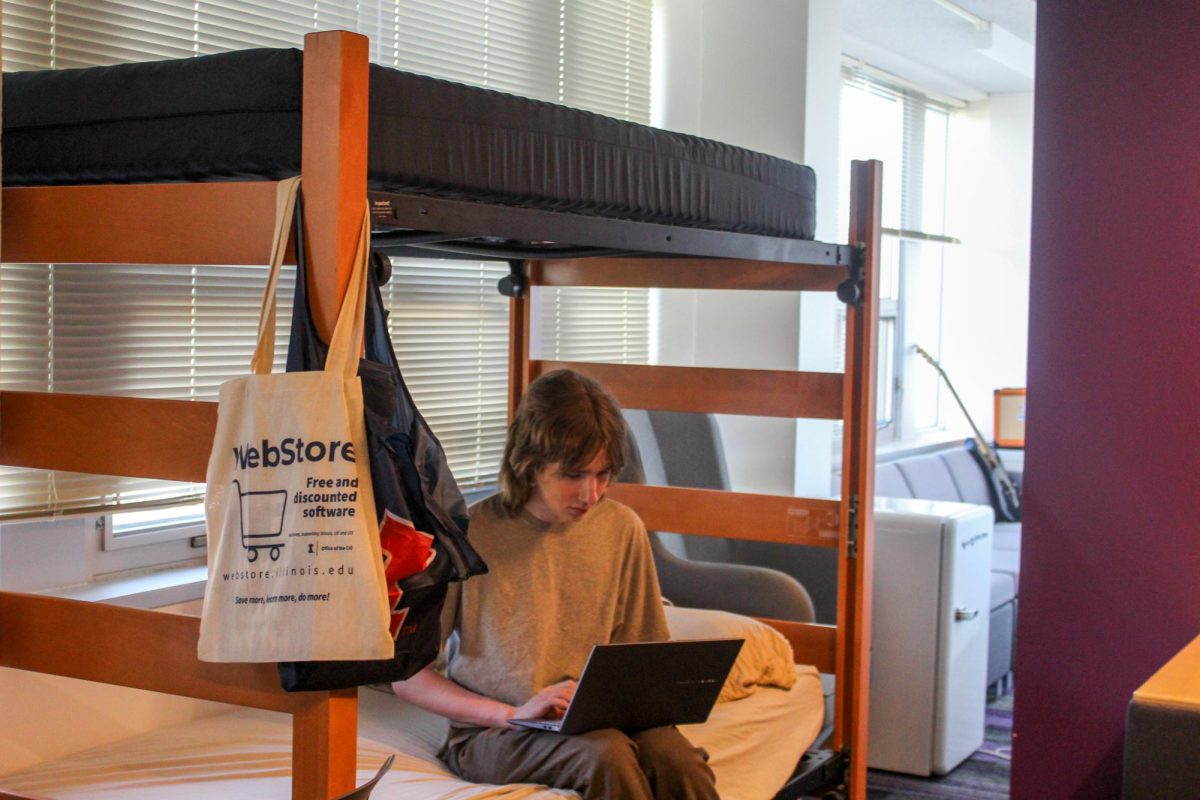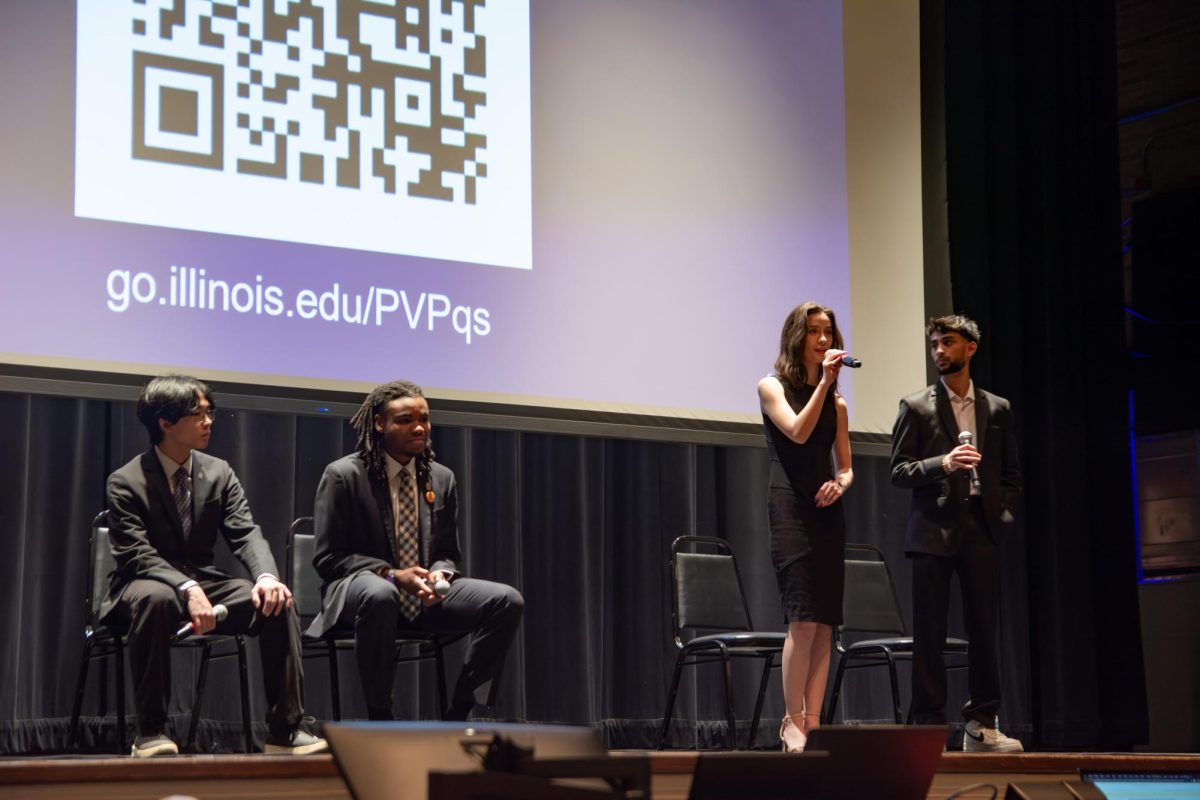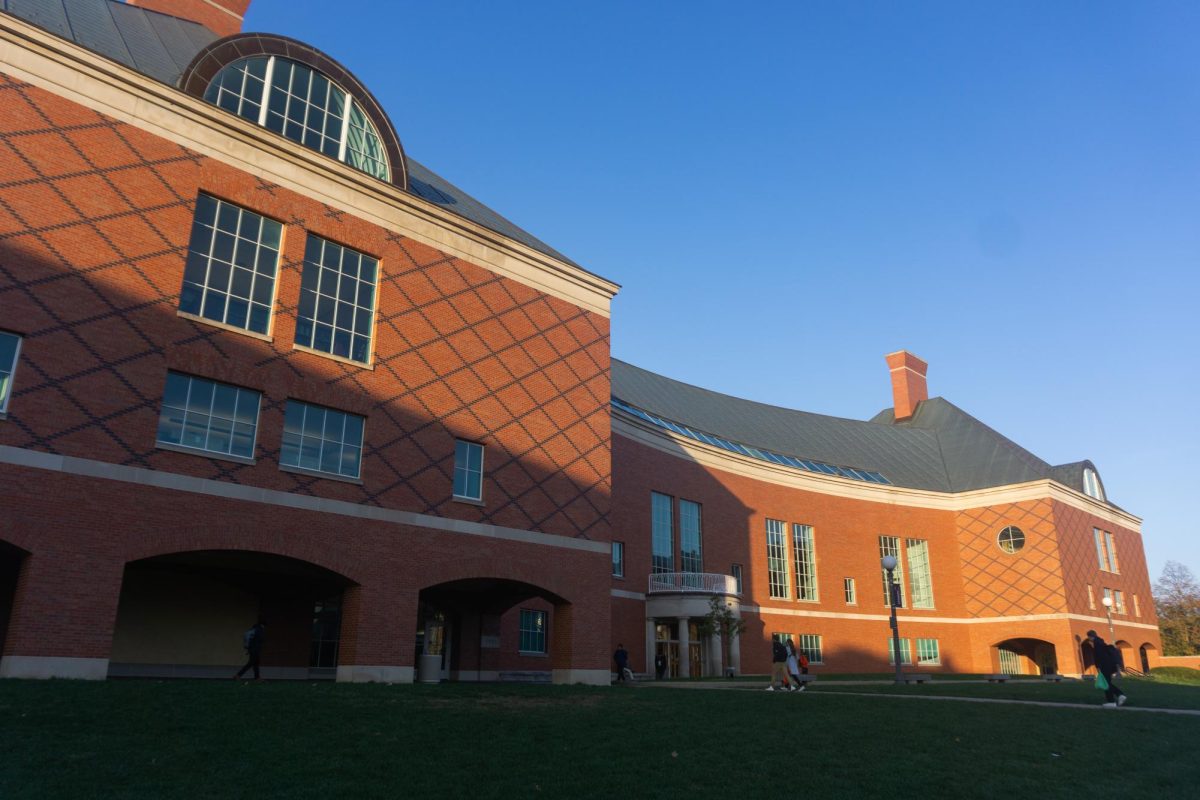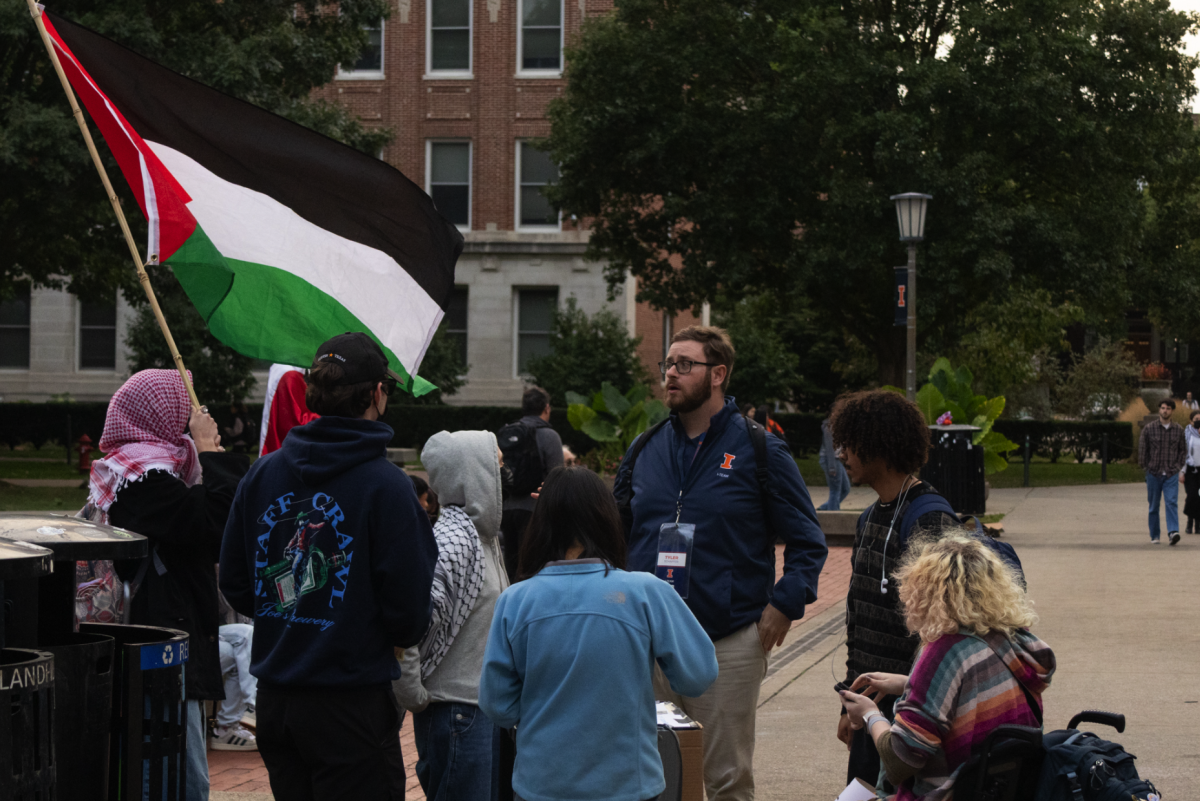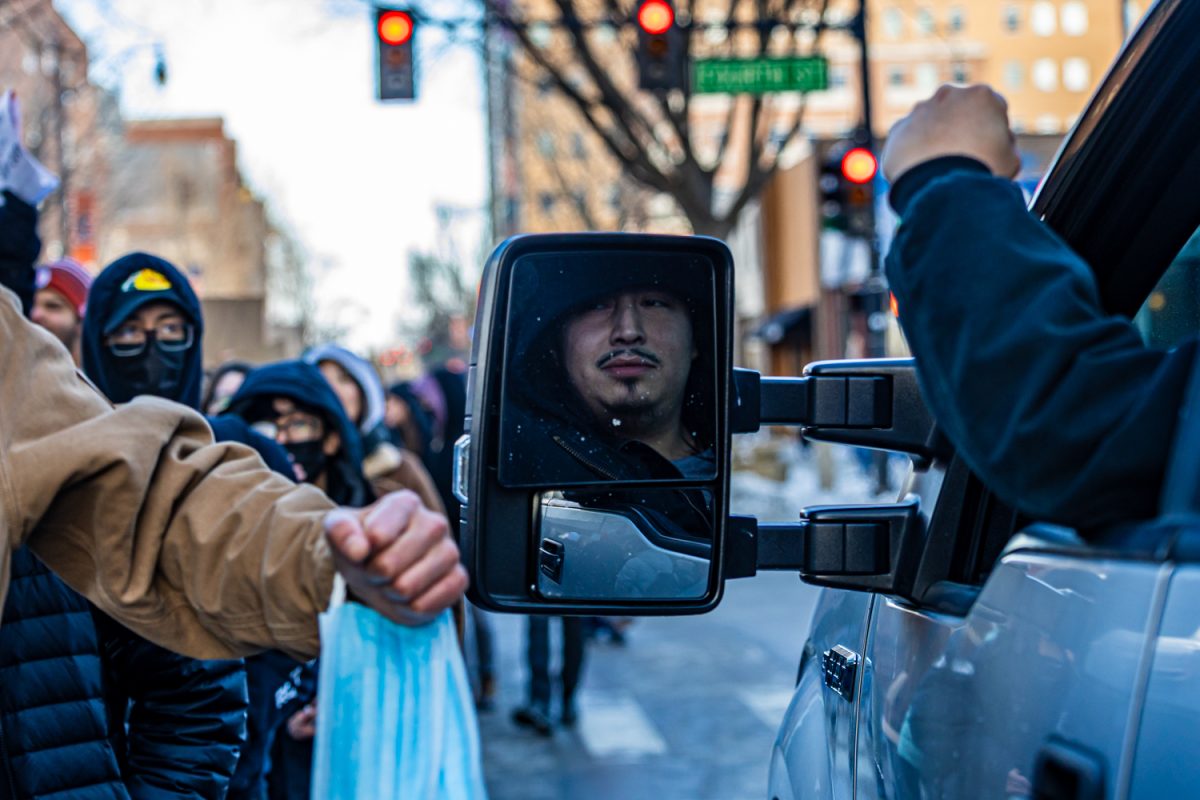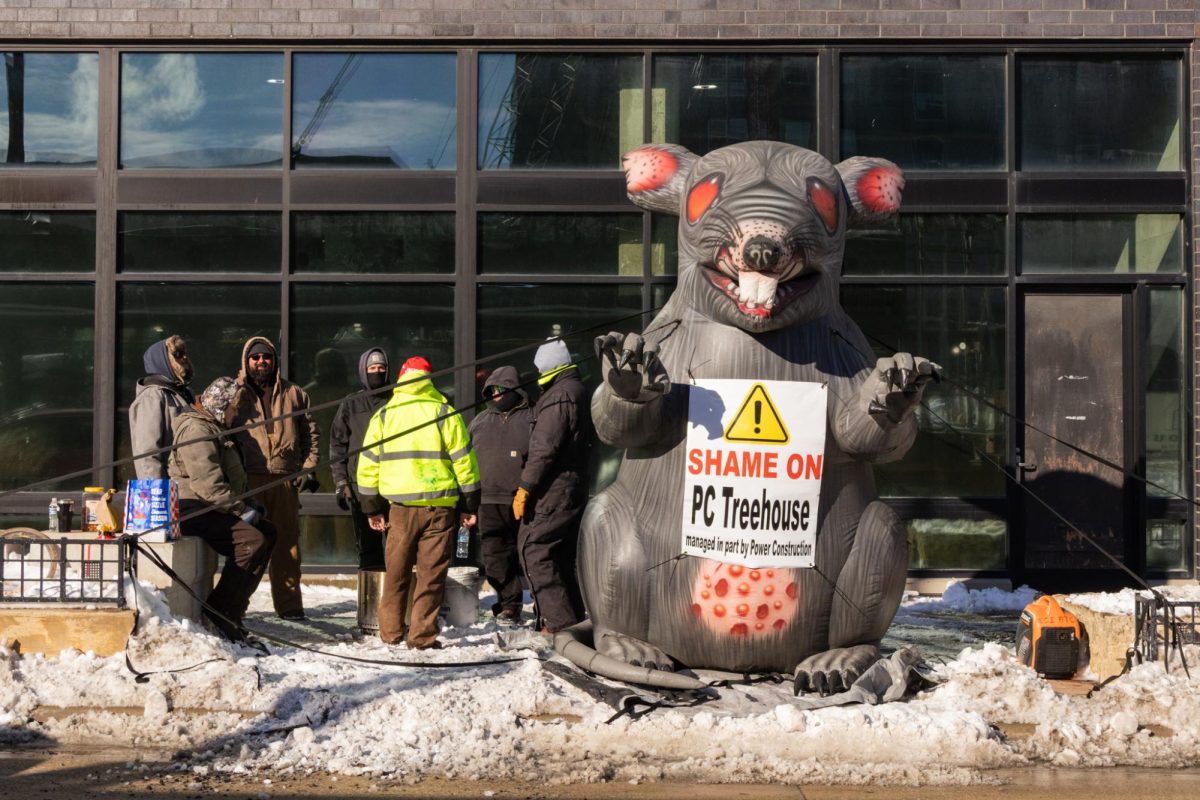The ACLU of Illinois issued a letter last month advising the University to respect free speech on campus. It cited administrative actions taken against the Students for Justice in Palestine and Students for Environmental Concerns in recent months.
The letter follows months of contention between the University administration and student groups SECS and SJP. Both groups have complained of undemocratic processes for amending the Student Code and overly harsh punishments for protests.
In the letter, the ACLU outlined recent administrative actions it classifies as impinging on free speech.
“As a public university, the University of Illinois is legally required to protect the First Amendment rights of its students, including their right to protest on controversial issues without censorship or retaliation from the administration,” the letter read.
Last spring, SJP held a 13-day encampment demanding that the University divest from companies and weapon manufacturers involved in the Israel-Hamas war. Several participants were arrested on the University’s grounds during the encampment.
Get The Daily Illini in your inbox!
The University revoked SJP’s status as an RSO in August, citing violations of the Student Code’s rules for student expression. The group is prohibited from seeking reinstatement until 2027.
“I think it’s obvious to anyone that it’s completely unfair, extremely harsh,” said a member of SJP who elected to remain anonymous for safety reasons.
SECS was also a main point of reference in the letter. Its annual climate march, held in September, faced exaggerated penalties.

One complaint by the administration concerned the march obstructing the Foellinger Auditorium. SECS as an organization and three members, specifically, received disciplinary notices for violating the Student Code. Those accused were ultimately not found liable.
Gabriella DalSanto, action co-coordinator of SECS and sophomore in ACES, was one of the individuals faced with disciplinary action.
“I do feel like they were trying to make an example of us, in a way,” DalSanto said.
DalSanto confirmed that September’s march was conducted similarly to those in past years.
“We’ve been doing these climate marches for about 11 years now … and they happen pretty much in the same way every semester,” DalSanto said. “This year, we did change things, but it was actually to be in accordance with the protest policies.”
Robin Kaler, associate chancellor of the University, upheld the administration’s response to the march in an email to The Daily Illini.
“The behaviors that occurred in September violated long-standing policies related to obstructing pedestrian and motor vehicle traffic and using a bullhorn within 50 feet of a classroom and the Turner Student Services building,” Kaler said.
The letter also denounced University revisions to the Campus Administrative Manual made this summer. The ACLU, as informed by members of SJP and SECS, claimed that the process used to revise the manual was undemocratic and allowed both groups to be disciplined with greater force.
“They just broke precedent of giving enough time for public comment,” an anonymous member of SJP said. “They did it over the summer to keep it hush-hush.”
SECS expressed similar concerns over the revised CAM policies, claiming they led to the punishments the group received following September’s march.
“Doing it over the summer when students aren’t on campus … I think was intentional,” DalSanto said. “I think it’s something that should’ve been more of an open dialogue than it was.”
The University defends its revision procedure in an FAQ on the University Strategic Communications and Marketing website.
“We sought feedback on the policies and posted them for two weeks to allow for public comments,” the page reads. “In that time, we received more than 200 comments and emails from faculty, staff and students.”
Kaler also commented on the alteration of CAM policies.
“Recent revisions to campus policies were intended to clarify the boundary between lawful exercise of First Amendment rights and activity that creates safety hazards or disrupts educational activities, while also providing students and others with resources to make their voices heard,” Kaler said.
SECS and SJP remain active, but SECS expressed differences in its activities and attitudes following recent interactions with the administration.
Multiple leading members of SECS are currently involved in student politics and are concerned about losing their good academic standing due to administrative penalties for future protests.
SJP now holds meetings in the off-campus Channing-Murray Foundation, as it is no longer eligible to book University spaces.
“We have known that these actions by the University violate our right to free speech,” an anonymous member of SJP said. “We were really happy that someone as significant as the ACLU … also noticed this.”
DalSanto said SECS had a similar response to the letter.
“It was really nice to hear that (the ACLU) cared so much and that they wanted to see the University succeed as much as we do,” DalSanto said.



